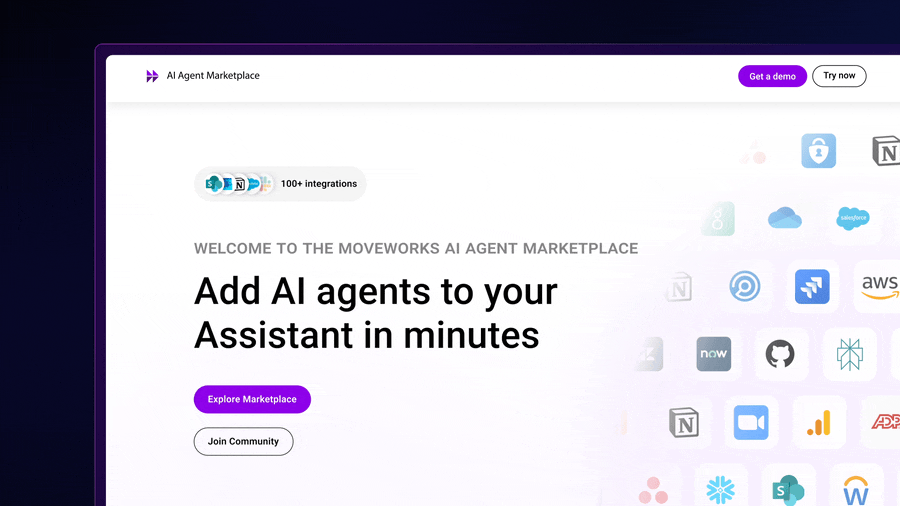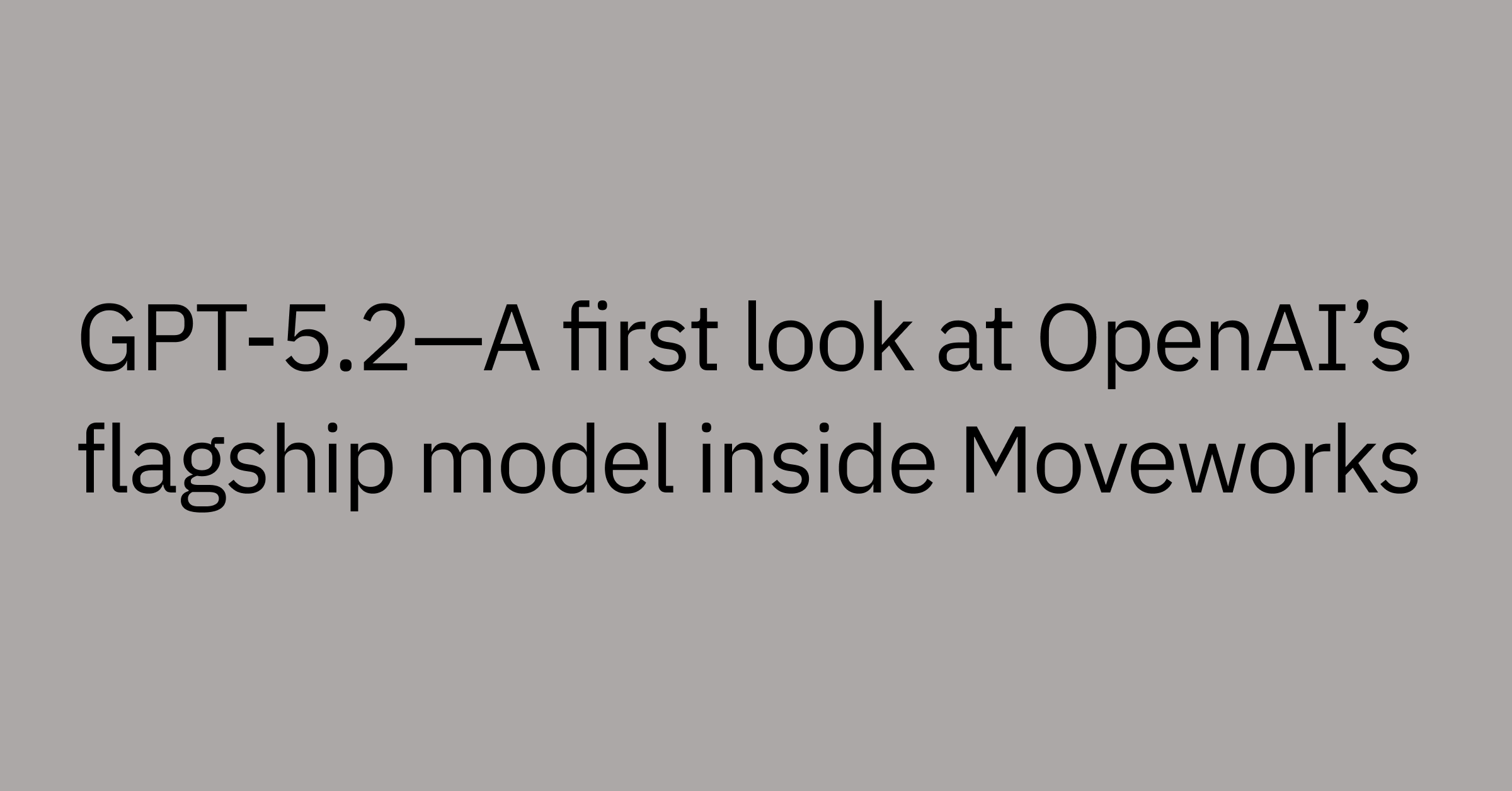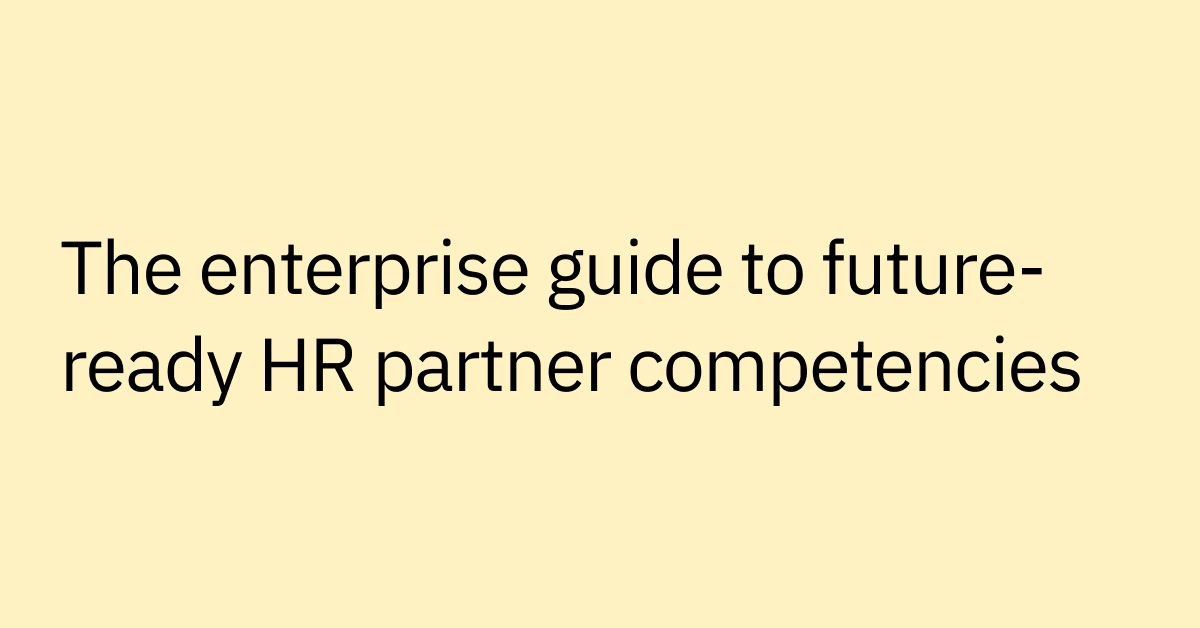Table of contents
A typical enterprise uses 1000+ applications. Consider a sales team closing a large deal. This process requires: preparing and approving contracts (Salesforce + DocuSign), securing pricing approvals from finance (SAP), finding and sharing customer-specific sales materials (Google Drive + HighSpot), and setting up accounts and implementation timelines (NetSuite + Jira). To complete this one deal, the teams navigate at least seven different systems and work functionally across several teams including Legal, Revenue Operations, and Finance.
Navigating today’s enterprise landscape
This application fragmentation isn’t unique to sales. Thousands of business processes across the enterprise similarly span multiple systems and are rife with repetitive and complex tasks. To accelerate these processes, organizations often rely on specialists who understand how to manage these intricacies.
However, this leads to cumbersome workflows that require additional coordination across teams to be built. Unsurprisingly, the system sprawl and disjointed workflows are not only a drain on employee productivity, but also business productivity: 47% of digital workers struggle to find information or data needed to perform their jobs effectively and 46% of respondents believe poor business processes increase the risk of manual errors. Deals take longer to be reviewed, quotes get stuck in rounds of redlines, and tasks that should be simple are delayed by internal bottlenecks.
To automate these workflows, organizations have historically relied on traditional automation tools like iPaaS, which handle static tasks well, but fall short with dynamic processes requiring real-time decisions or those that interact with multiple systems. To truly transform business processes, organizations need a solution beyond simple automation — they need AI agents.
AI agents can reason, plan, execute, and adapt, allowing them to handle complex business processes and policies embedded within them that traditional tools can't. Consider an approval workflow involving multiple departments. An AI agent can autonomously and independently follow a business process, engage stakeholders for approvals, and update systems in real time.
So why aren’t AI agents embedded into every business process yet?
How the potential of AI agents has been limited
AI agents have long promised to revolutionize enterprise workflows. However, realizing that promise has been challenging.
Challenge 1: Developing a transformational AI agent strategy
Business leaders are tasked with ambitious goals to transform team and business productivity. This could include boosting sales productivity, accelerating hiring timelines, or minimizing the time engineers spend resolving outages. Yet, identifying the right AI agents to translate these objectives into executable AI-driven strategies is challenging, slow, and resource-intensive. This gap leaves organizations at odds between the vision and delivering tangible outcomes.
Challenge 2: Researching APIs for business systems
Building and deploying the right AI agents is wrought with hidden layers of complexity. Teams must do comprehensive research and have a deep understanding of system specific APIs, permissions, and workflows. Evaluating these technical dependencies and architecting how to bring AI agents to life takes time and resources that many organizations don’t have.
Challenge 3: Converting natural language into API-friendly values for business systems
Traditional automation tools like iPaaS excel at connecting APIs with other structured inputs and APIs but struggle when tasked with executing on natural language. For example, they cannot reliably translate a request like “I’m not feeling well, submit a sick day” into the appropriate API call needed to log a sick day (e.g., “SICK_TIME_OFF_3425”).
Challenge 4: Building AI agents that reliably follow business processes
Most AI agent builders have a primitive approach to policy validation today — they feed text instructions into an LLM and expect the LLM to appropriately enforce those policies. Business policies are rules, not suggestions. AI agents need to be able to consistently and reliably follow these guidelines when navigating nuanced business processes, whether it be quote generation (e.g., adhering to a minimum order size) or expense management (e.g., knowing what is in vs. out of compliance).
Challenge 5: AI performance
Tools that combine traditional automation with a bolted on large language models (LLM) require extensive prompt tuning. While many existing platforms provide testing tools, they also require users to handle complex prompt engineering to go from test to production-ready at scale. In fact, 1 in 4 developers cite evaluating and testing prompts as their biggest pain point with AI tools. Existing tools fall short, leaving organizations with long implementation timelines and half-baked investments.
The result? Without the right infrastructure and expertise, the promise of AI agents can’t be realized nor deliver scalable and reliable results for enterprises.
Introducing the AI Agent Marketplace
Creating and discovering AI agents requires a platform that’s fundamentally built differently, one that not only guides users to the best AI agents based on extensive research, but also explains how they work, connects human language with APIs, and accounts for each organization’s specific business rules and processes.
That’s why we’re introducing the AI Agent Marketplace.
Moveworks’ AI Agent Marketplace is a brand new surface that allows stakeholders to not only imagine the possibilities for AI agents that can run business processes for all teams, systems, and employees, but also can bring those AI agents to life in as little as minutes, not days or weeks.
The AI Agent Marketplace addresses the first two challenges around developing an AI strategy and building AI agents.
Developing a high-impact AI agent strategy
The AI Agent Marketplace offers 100+ pre-built, installable plugins designed to level-up and automate common business processes across teams including IT, HR, Finance, and Sales. The curation stems from deep research and validation into typical business processes that teams carry out, the individual tasks needed to successfully execute each one, and pain points that arise within each. Paired with system-level API research, each featured AI agent pack highlights a clear path to reliably automate business processes and adhere to policies to help teams scale their operations.
Building AI agents
A game-changing feature of the AI Agent Marketplace is the ability for developers to directly install plugins from the AI Agent Marketplace and configure them to meet their specific business requirements in a low-code editor. This is a powerful feature that means there’s no need to keep reinventing the wheel, the integration, or the API – the use case research is accessible at your fingertips.
The AI Agent Marketplace comes ready with 100+ pre-built installable templates that span different systems and underlying business processes that teams need to execute on a repetitive basis, with new ones added each week.
Let’s dive into a few:
- Expense Management on Coupa —> Automates the entire expense workflow. Employees can submit expense items and view pending expense report approvals. Managers can approve or reject expense reports with ease, while both employees and managers can access detailed expense report information, streamlining the process and reducing manual tracking.
- PTO Management on Workday —> Simplifies time-off management by providing employees with easy access to their time-off balance and allowing them to quickly request time off. Managers can effortlessly approve or reject PTO requests and gain visibility into their team's PTO balances and who is on PTO on any given date, streamlining the process and improving visibility for everyone involved.
- Task Management on Asana —> Helps teams stay organized and efficient. Employees can generate a summary of a project to quickly assess key details, then retrieve tasks tied to a specific project for better task tracking. They can update tasks or delete ones that are no longer relevant. It’s also easy to view all tasks in a unified list and get an overview of all active projects, ensuring everyone stays aligned and focused without manual coordination.
As part of this launch, we also have five new partner integrations, each contributing specialized agents to our growing AI Agent Marketplace to deliver even more powerful and targeted workflows across IT, HR, Customer Support, and more.

In conjunction with AI Agent Marketplace, the broader Moveworks Agent Studio platform collectively addresses all five challenges with our:
- Industry-leading Agentic Reasoning Engine to break down problems and identify the right tools (i.e., plugins) to solve them
- Brand new Plugin Workspace, an intuitive, low-code editor to build and configure plugins
- Groundbreaking Agentic Automation Engine that teaches AI agents to connect natural language to systems and follow business processes reliably and consistently
- Connectors to securely communicate with business systems and match every user’s permissions. Each connector includes authentication methods, connection name and other system specific inputs
- Analytics to assess the business value of AI agents deployed
The front-end user experience is brought to life through the AI Assistant, seamlessly meeting employees where they work.

Moveworks Agent Studio is a platform purpose-built for building, configuring, and deploying AI agents that automate business processes.
Fast. Scalable. Enterprise-ready. Build with Agent Studio.
Discover AI agents for all employees. Check out the AI Agent Marketplace.



